Most modern board gamers have their “gateway game:” the experience that took them from the previous generation of Monopoly and Sorry! and ushered them into the new world of worker placement games, deckbuilders, cooperative games, eurogames, and too many others to count - along with conventions that draw thousands upon thousands of players.
For those of us now in the thick of it, with walls covered in kallaxes and heads full of obscure rules, it’s a little disorienting to step back and realize that there was a time when we only knew maybe half a dozen board games. However, taking that step back might help us learn something.
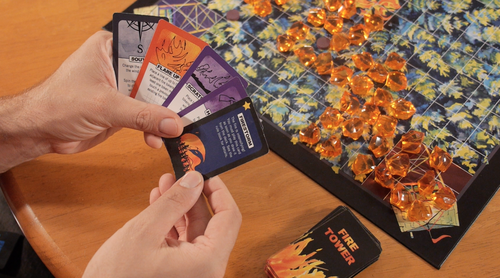
It should be said that everyone’s gateway into board games is going to be different. Heck, there’s a very good chance that your first favorite game is very different from your current tastes! Hopefully by looking at some of our own original favorites, we can try to parse out what makes a good gateway game.
Without further ado, here are the gateway board games from some of the Sprites and Dice writing team.
Eric - Settlers of Catan
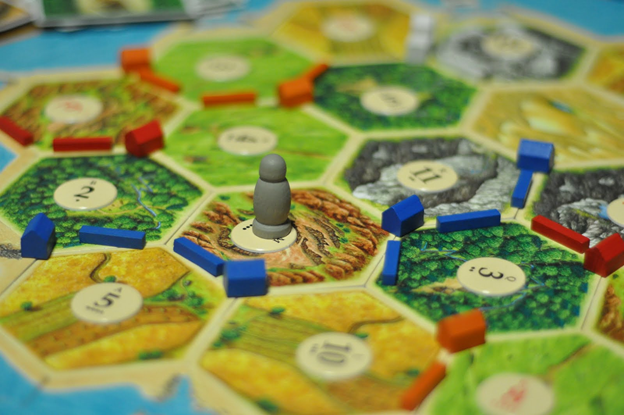
Well, mine’s pretty much the standard answer: A friend of mine invited me over to play Settlers of Catan, and it all went downhill from there.
It seems funny to think about now, but back in the day, this game blew my mind. Where’s my character token? Why are the tiles such a weird shape? What do you mean I have to choose where I start? How do we know who’s winning?!
For a kid who basically grew up on Sorry! (and never had the patience for Risk), it seemed like an awful lot of strategy and a lot of rules to keep straight. And yet, for all of that, it was a pretty quick game - short enough that I was ready to play again after getting whupped the first time. There was enough player choice to try and change the board while still having plenty of chance. I wanted to know if I could do better the second time, not just if I'd get better dice rolls.
That was the day I realized that there were more board games out there than I’d ever imagined, and Catan was just the start. That’s probably part of it: Settlers of Catan was in the right place at the right time for a lot of people who wanted something more than the random chance games they grew up with.
Adam - Battlestar Galactica
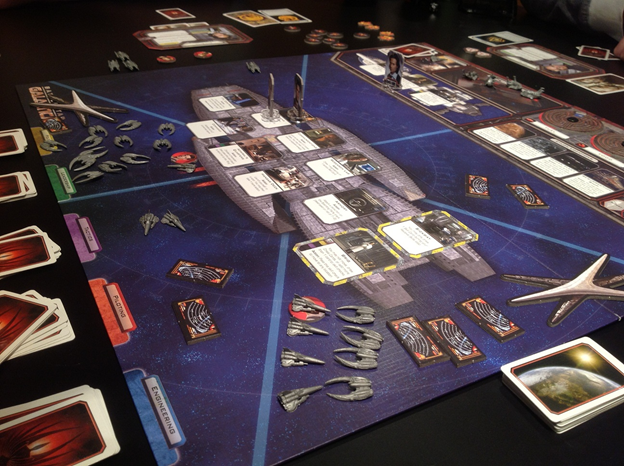
So, I actually wrote a whole article about this already! My answer hasn’t changed since then, so here’s a brief excerpt:
“It wasn’t until I was an adult, still gaming with a community online, that I heard about Battlestar Galactica... It wasn’t long before I bought my own copy. The concepts in Battlestar Galactica were a little more complex, but dealing with tabletop RPGs and some of the odder games from my childhood meant I wasn’t deterred; you could say the difficulty level of the game was a good fit for me. The theme was interesting (I love sci-fi games), the selectable roles were a fun touch of balance in asymmetry, and the hidden traitor mechanic absolutely hooked me. As a whole package, this game blew my mind; it was so different from anything I’d ever seen. This was the game that pushed me down the rabbit hole of modern boardgaming. I went online to look up more reviews and discovered just how much I’d been missing.
Battlestar Galactica’s gateway potential didn’t end there, though. I actually managed to gateway others into the hobby with this game acting as our point of contact. When I introduced it to a small group of friends who had a history of playing Poker together, it was an instant hit.”
You can read the full article here.
Wyatt - Warhammer 40k?!
Okay, so this might take some explanation. After all, a tabletop miniatures game that can cost you hundreds of dollars and thousands of hours doesn’t seem like an easy access point into a hobby. On top of that, a tag line of “In The Grim Darkness of the Future, There Is Only War” doesn’t feel like its user friendly.
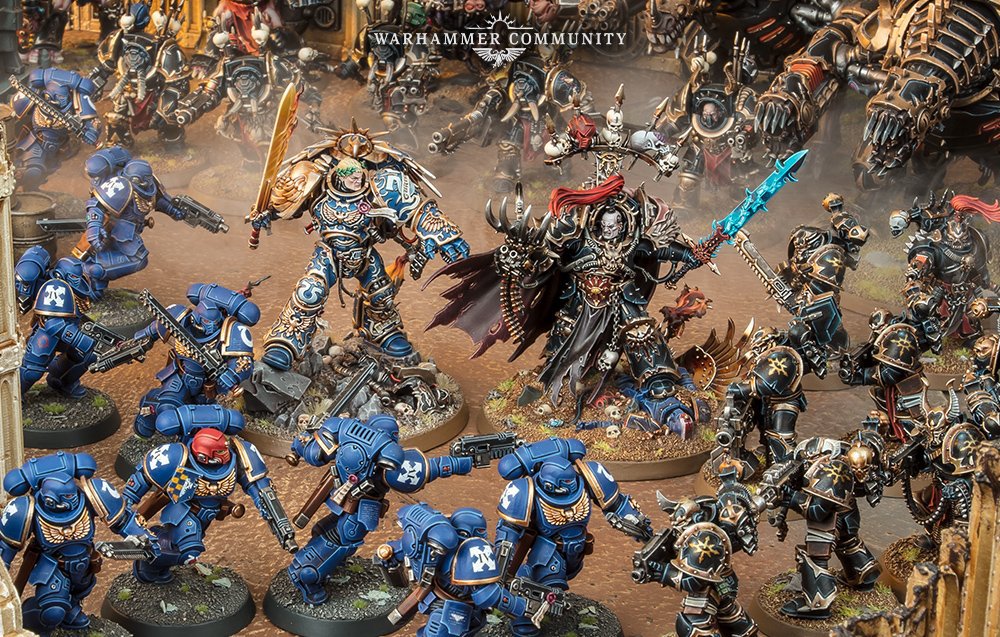
Maybe 40K felt accessible because I was 13 and played Linkin Park on repeat when I found this game.
Like many who grew up with Candyland, Monopoly, Sorry and the like, the idea of board games being something other than ‘roll a die, move that many squares’ felt alien and strange. Neat little boxes, bright primary colors, and saccharine sweet, meant to offend no one. Then someone at my high school handed me a bunch of metal miniatures armed with strange weapons and said “Let’s fight a war”.
It was a small game in the end, with only a handful of units each, but it was a revelation. I had always loved to find myself in other worlds, and here I suddenly felt like I was in one. Warhammer 40k wasn’t just a game you played once, but instead had depth in its sprawling lore and evocative miniatures. It was a game that yes, you rolled dice in, but things like tactics, army choice, and strategy mattered just as much as that dramatic moment you rolled 30 dice in a hail of gunfire.
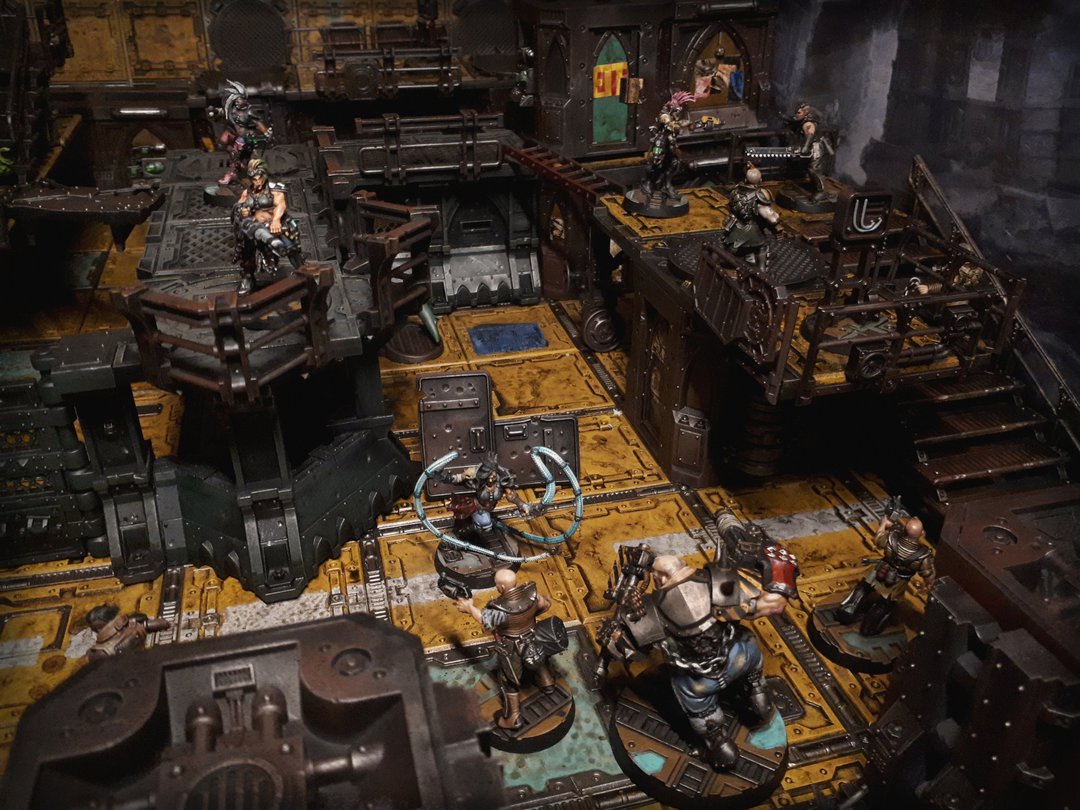
The world of miniature war games is immense. There's small skirmish games, larger war games... there's people who focus on winning tournaments, and others who take joy in collecting and painting the minis. I get a lot of joy of scrolling my twitter feed to see all the talent on display (Photo and minis painted by @Theelusiveshaun).
I wasn’t allowed to get a full army growing up; there was no way to get to the hobby shops where people played, and honestly, a lot of people scoffed at the idea of painting little metal figurines. Now, 20 years later, things are a little different. I’m grown up, I have a kid, I have a car, and I have a little expendable income. Entire sections of twitter are dedicated to people sharing their paint jobs. While it’s been at least a decade since I’ve played this game that opened my eyes to the wide world of board games and what could be done with them, I can’t wait to come full circle, returning to the one that kindled my love for the hobby.
What Makes A Good Gateway Game?
When people speak of gateway games, most think of a game which is accessible, cheap, and simple. In a lot of ways, it’s a really good basic description: something people can try, easily understand, and realize there’s a lot more out there to try playing. In fact, if you were ask me for a game recommendation to play with someone who’s never played a modern board game before, I’d have to go with a few different choices:
Pandemic - Very popular, relatively fast, with an understandable theme that adds to the tension. Maybe not the easiest rules, but since it is a cooperative game where everyone works together to try and stop a Pandemic, I have almost always found success with using it as an example of how board games can do more than just roll dice.
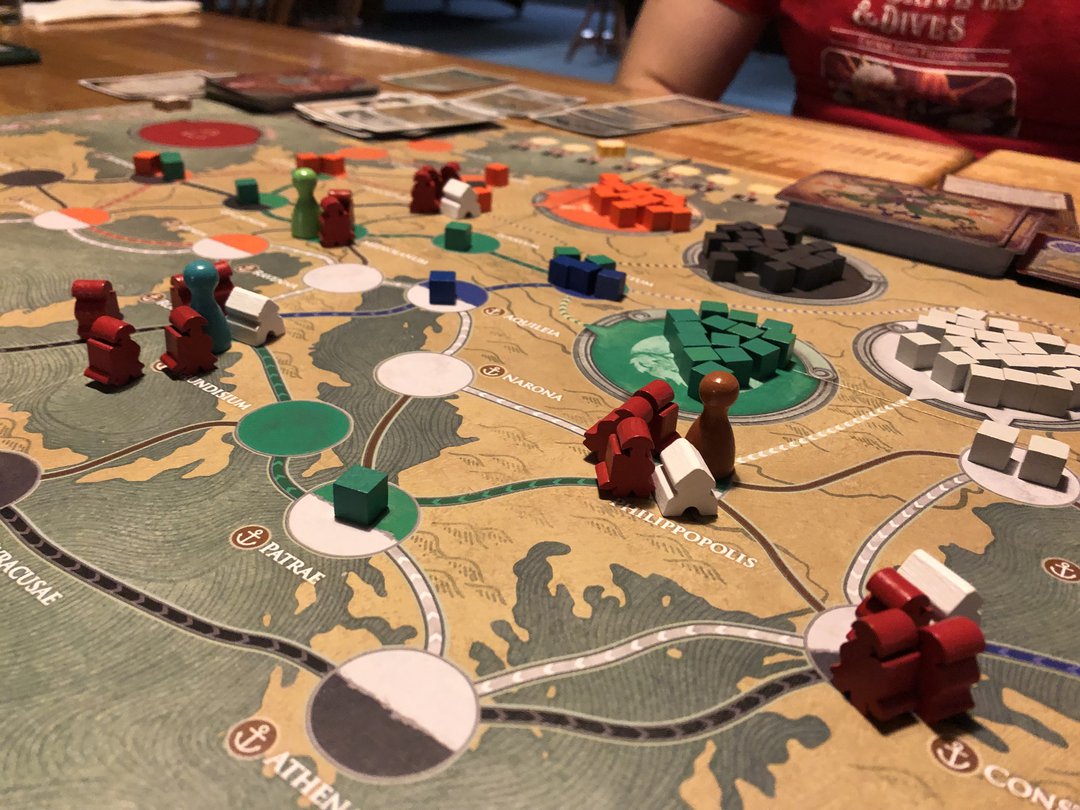
Another perk of Pandemic: there are a ton of editions and alternate ways to play. Pictured here is Pandemic: Fall of Rome, where the disease cubes are instead barbarians marching on your capital.
Tiny Towns - This game doesn’t have a lot of rules, and the concept is wonderfully simple. You are trying to build a tiny town, and each round you try and place a colored cube each turn to make buildings until you run out of space. That’s pretty much it! But simple rules doesn’t mean a simple game; it is a lot of fun to play with one friend or four, and new players understand the game very quickly because you are picking up cubes and buildings and placing them on your own personal board. Its tactile, fast, and genuinely fun.
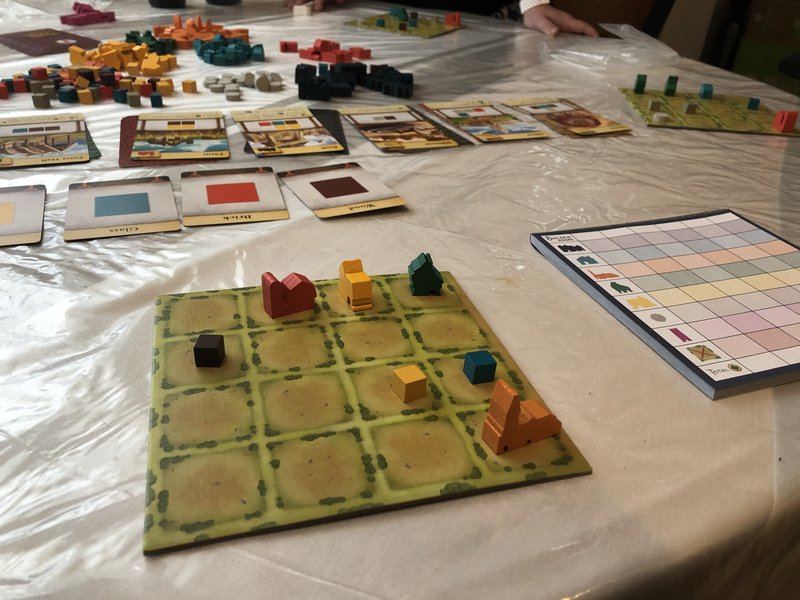
Splendor - It’s fast, it's pretty, and it's very quick to understand. Get cards to get more gemstones, Use gemstones to get access to more cards. It comes in an easily contained box, and the use of weighty poker chips was a genius production choice, giving players a very satisfying clink as you collect your gems. I know a lot of game players who consider it basic, but I love the simplicity of teaching how to play and how to win.
The list above isn’t a full list of games I’d recommend to use as entry level games to the genre. Villainous, for example, gets great reviews and many are interested immediately due to its use of Disney villains, while Ticket To Ride has been wildly popular for being a board game whole families can enjoy while still having some depth… I just haven’t played either. There are plenty of games that others might recommend as their favorite game to introduce new hobbyists to.
And this brings me back to the original question. What makes a good gateway game? I stand by the list just presented: They are relatively quick games, are easy to learn, and use common board game mechanics like engine building or worker placement or set collecting in ways that don't need much explanation.So why don’t see the games from our staff on there, even though we’d swear by these as the games that gave us our first taste of the hobby. Why is that?
The best answer I can come up with is that while we can try and recommend games that are ‘easier’ or accessible to new players, it is the new player themself that determines if a board game becomes a gateway to the bigger hobby. I can throw Pandemic on the table and give a practiced rules breakdown and hype pitch in my sleep now, but if that player doesn’t have interest in the theme, if they don’t like the idea of cooperative board games, it won’t connect no matter how much I try. I’ve seen people who have never played a board game before walk right past the ‘how to play’ area we’ve set up and jump right into something as complicated as Root just because they love the idea of being a murder raccoon.
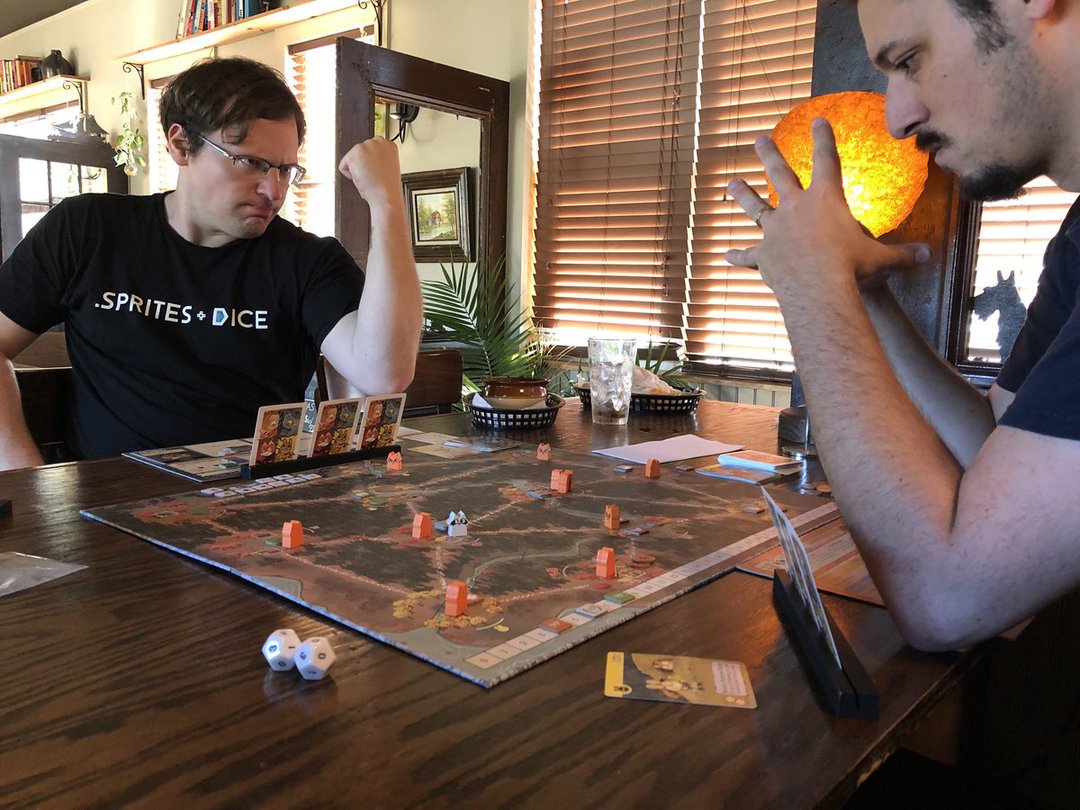
There's a difference in getting someone familiar with how to play board games and inspiring them with why they would want to play board games.
What it boils down to is this: If you are trying to share your love of board games with someone new to the hobby, pay attention to what excites them. If they love Dune and you know they like stories of intrigue, then maybe try jumping right in with a more ruthless game than I’d usually recommend, like Dune: Imperium. Are they a biology student or love going to zoos? Maybe try Oceans. And if they love Disney movies, then perfect, Villainous is going to do double duty for you.
At the end of the day, board games are a collaborative experience, and approaching new players in that same fashion is the best way to get them to see how the world of board games and tabletop has so much to offer everyone. Find the game that gets you excited and you feel might be a great first fit, but don’t be afraid to drop it all and try something new yourself either. After all, by the end of the experience, you might find yourself with a new favorite game too.